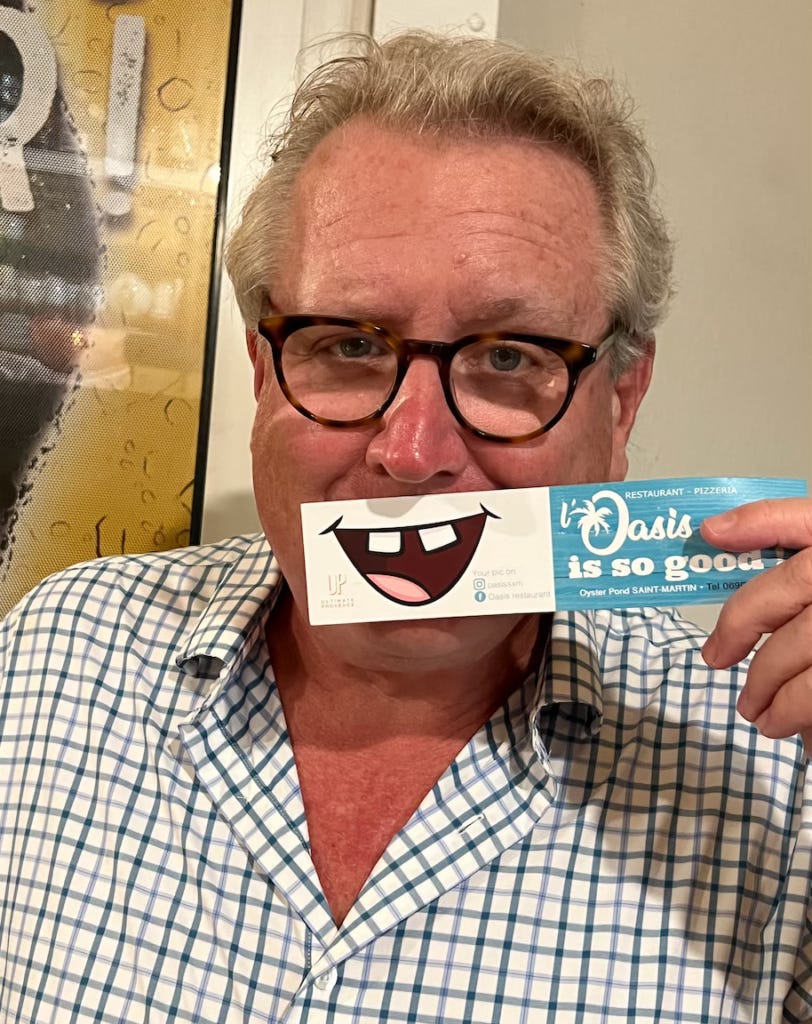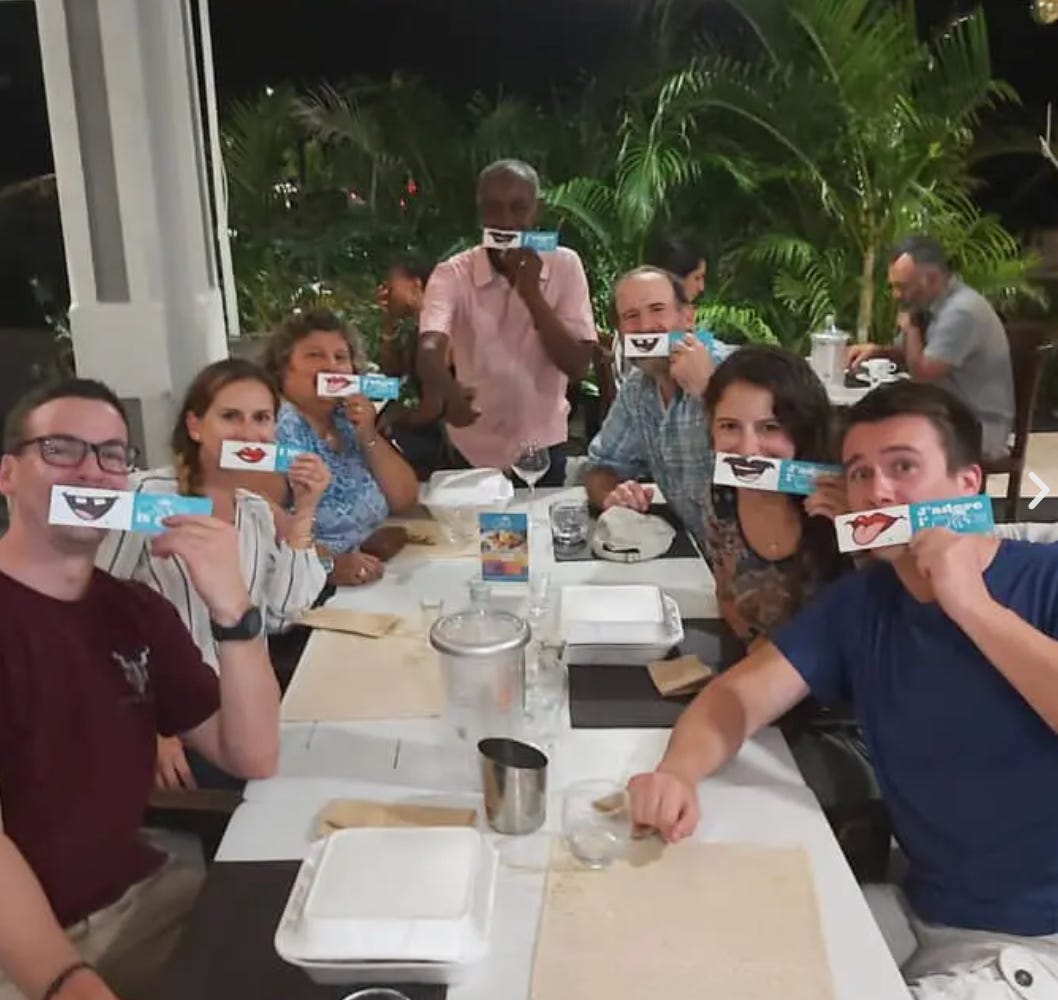Are you really building a personal brand on TikTok?
Is it a personal brand on TikTok, or is it something else? Here are a few short observations.
Too short for a blog post, too interesting to ignore, here are some quick thoughts from the Schaefer-verse:
Is it really a personal brand on TikTok?
I've been teaching about personal branding for nearly a decade and probably have studied this subject as much as anyone on earth. But a new development has me flummoxed.
Increasingly, "personal brand" is becoming synonymous with performers on TikTok. I've seen this connection creeping in, but it slapped me in the face when I saw sessions on "personal brand strategy" at SXSW run literally by teen TikTok stars.
I'm not against teen TikTok stars—go for it. But is this building a personal brand ... or achieving personal fame? There's a difference.
The term "personal brand" was popularized by a 1997 Fast Company article called "The Brand is You" by Tom Peters. He stressed the importance of curating your own professional brand (just like a corporate brand) to succeed in business.
In my popular Personal Branding Master Class, I make the distinction between fame (like Kim Kardashian) and a personal brand, which means you have the
presence
reputation
authority
... to make your professional dreams a reality. You probably won't be famous (and don't need to be), but you will be known in your industry, and that's a HUGE advantage.
By the way, I think you can create a professional personal brand, instead of personal fame, on TikTok just like any other channel. I've seen some great marketing and business content there.
But today, TikTok's meme-merchants with brand deals seem to be lumped together in the "personal brand" category by the popular media. I think that's confusing. Am I splitting hairs?
I broke my own rule
In many of my books and speeches, I implore marketers to stop doing what people hate -- interrupting, intercepting, and spamming, for example.
Here's one thing that I know people hate: pop-up ads. The research is overwhelming. In 2014, Ethan Zuckerman, the inventor of the pop-up ad, wrote a lengthy apology for his creation in The Atlantic. He called it “The Internet’s Original Sin” and pleaded with businesses to “ditch them.”
And yet, I now have a pop-up on my site. One attentive reader called this irony to my attention, so I thought I would explain it.
Subscriptions to my blog had been stagnant. Long story short, I am fighting the math of large numbers (the bigger the email list, the more I need to grow to keep up with natural attrition).
I needed to upgrade my email strategy, and one recommendation was to add a pop-up to gently remind people to subscribe. I resisted the idea for years but finally succumbed.
I hope I have done this in a kind way. It only pops up after you have been on the site for a while, so it's not on your face, and it only happens once. Bottom line, it worked.
So I have a "gentle pop-up!"
No sugar-coating
In my last roundup-style post, I had a number of sobering observations about AI and our future. One reader chastised me for not being more positive.
I do think positivity is important, but the truth is even more so. If I don't tell you the truth, I am cheating you, deceiving you in the long term to make you feel good in the short term.
If you believe projections from Accenture, Deloitte, and McKinsey, between 40% and 70% of marketing tasks can be easily automated. My friend Paul Roetzer, who studies this more than anyone, ranted in his podcast this week that job displacement is coming fast, and he's worried that nobody is prepared for it.
I do not think mass job displacement is inevitable, at least in the short-term. There are many financial, legal, ethical, and political hurdles for AI to overcome. And, as I wrote recently, I believe is always a place for human creativity.
But change is coming. That's what's real right now. We can't see the truth through a sugar-coated lens. Let's grow together based on truth and lift each other up along the way!
Word-of-mouth marketing is where it's at
Word-of-mouth marketing (WOMM) is probably the most important marketing genre. But it has been relegated to a marketing sideshow because it's difficult to execute and even more difficult to measure. And frankly, it's just not as sexy as a celebrity-filled TV ad.
But I'm convinced in this deep fake age of mistrust, WOMM will emerge as an incredibly important strategy. It's not that hard. Give people something cool to talk about!
It can be this simple. I dined at the wonderful Oasis restaurant on the Caribean island of Saint Martin a few weeks ago. At each place setting, there was a little card to give you a fake smile. Donning the fake smile was irresistible of course. Don't you think kids would love this?
The simple word-of-mouth marketing idea becomes complete with unique stories on the back of the card. About 10% of the population are "super-sharers" who will take a cool story and share it with family and friends. That ignites WOMM. So, feed them the stories and it will spread.
Don't overlook visual prompts like the smile card to remind people to talk about you.
What are the stories you're sharing about your business? How are you getting them out into the world so your business becomes conversational?
I appreciate you and the time you took out of your day to read this! You can find more articles like this from me on the top-rated {grow} blog and while you’re there, take a look at my Marketing Companion podcast and my keynote speaking page. For news and insights find me on Twitter at @markwschaefer, to see what I do when I’m not working, follow me on Instagram, and discover my RISE community here.
Illustration courtesy Unsplash.com




